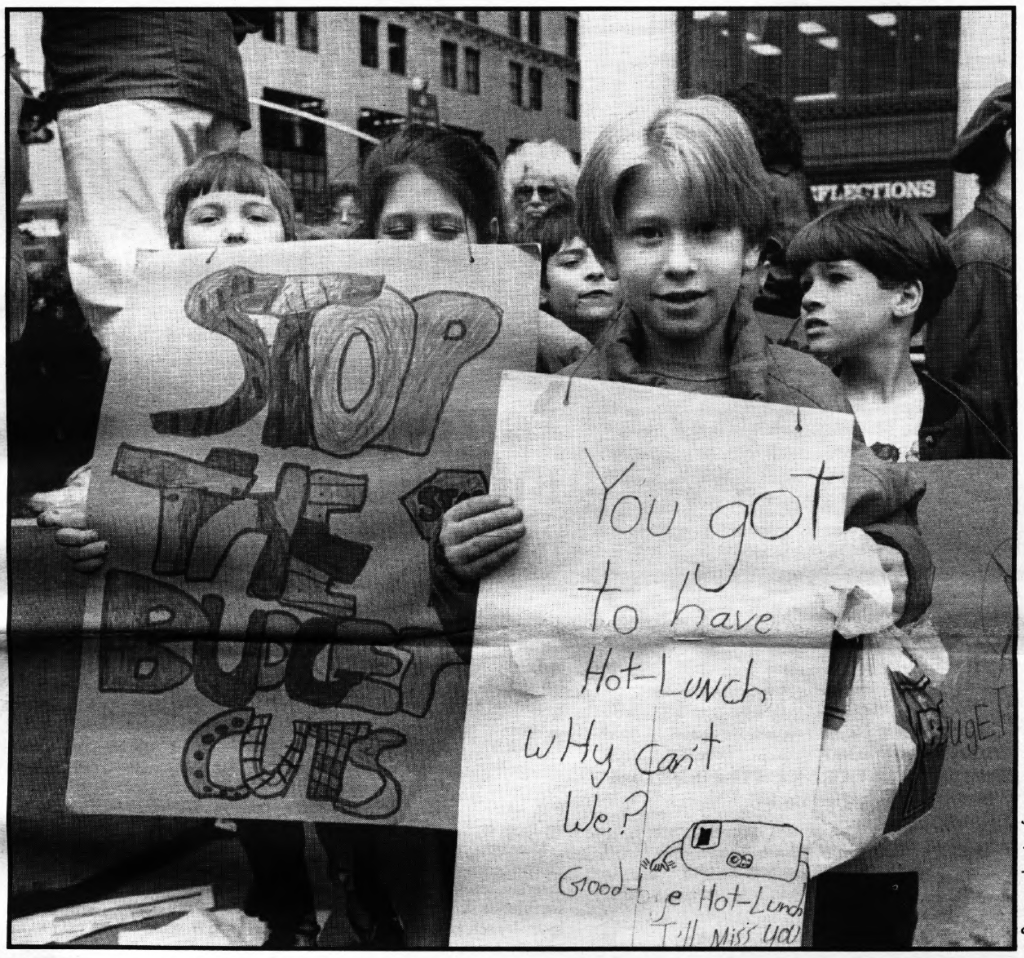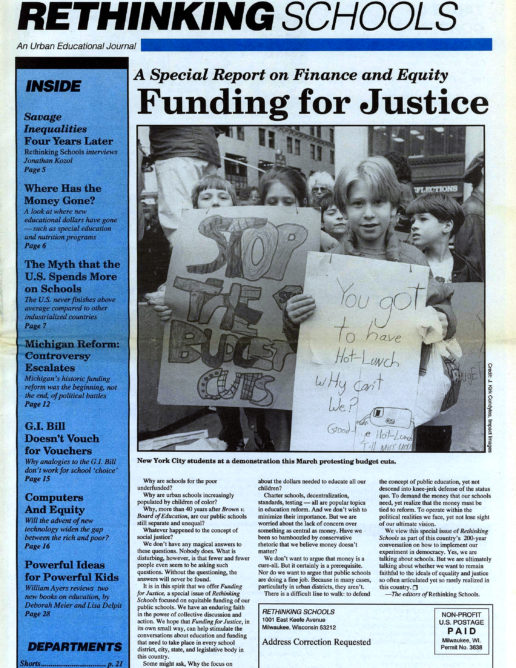Funding for Justice
A Special Report on Finance and Equity

Why are schools for the poor underfunded?
Why are urban schools increasingly populated by children of color?
Why, more than 40 years after Brown v. Board of Education, are our public schools still separate and unequal?
Whatever happened to the concept of social justice?
We don’t have any magical answers to these questions. Nobody does. What is disturbing, however, is that fewer and fewer people even seem to be asking such questions. Without the questioning, the answers will never be found.
It is in this spirit that we offer Funding for Justice, a special issue of Rethinking Schools focused on equitable funding of our public schools. We have an enduring faith in the power of collective discussion and action. We hope that Funding for Justice, in its own small way, can help stimulate the conversations about education and funding that need to take place in every school district, city, state, and legislative body in this country.
Some might ask, Why the focus on funding? Isn’t that issue passé? Aren’t you falling into that old 1960s trap of throwing money at social problems? We find such perspectives odd. It is axiomatic in this society that money talks. So why not talk about the dollars needed to educate all our children?
Charter schools, decentralization, standards, testing — all are popular topics in education reform. And we don’t wish to minimize their importance. But we are worried about the lack of concern over something as central as money. Have we been so bamboozled by conservative rhetoric that we believe money doesn’t matter?
We don’t want to argue that money is a cure-all. But it certainly is a prerequisite. Nor do we want to argue that public schools are doing a fine job. Because in many cases, particularly in urban districts, they aren’t.
There is a difficult line to walk: to defend the concept of public education, yet not descend into knee-jerk defense of the status quo. To demand the money that our schools need, yet realize that the money must be tied to reform. To operate within the political realities we face, yet not lose sight of our ultimate vision.
We view this special issue of Rethinking Schools as part of this country’s 200-year conversation on how to implement our experiment in democracy. Yes, we are talking about schools. But we are ultimately talking about whether we want to remain faithful to the ideals of equality and justice so often articulated yet so rarely realized in this country.

